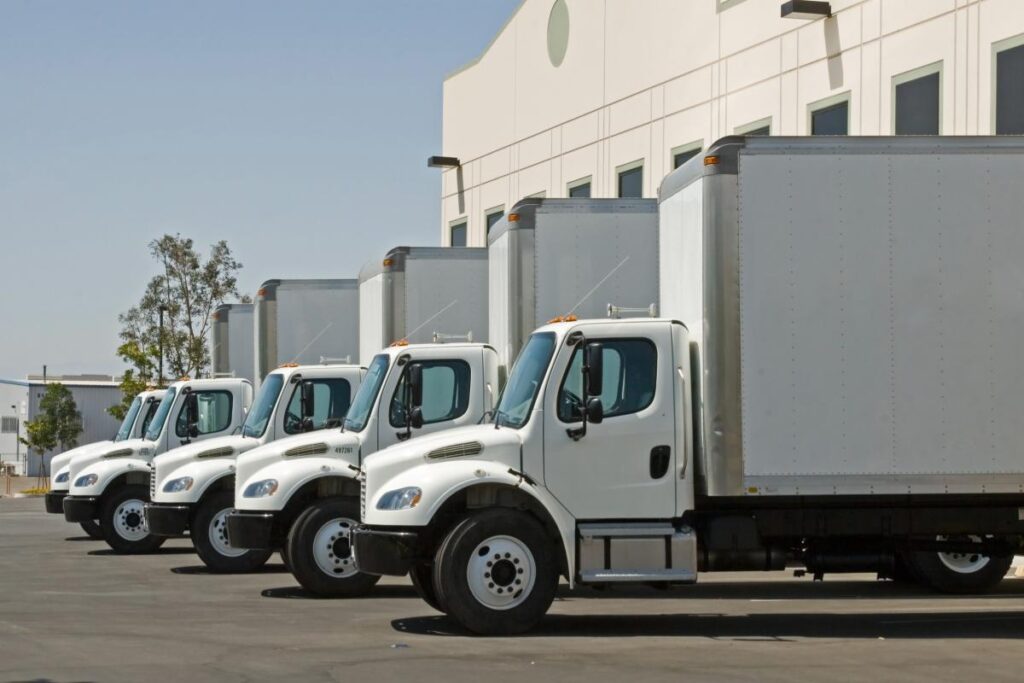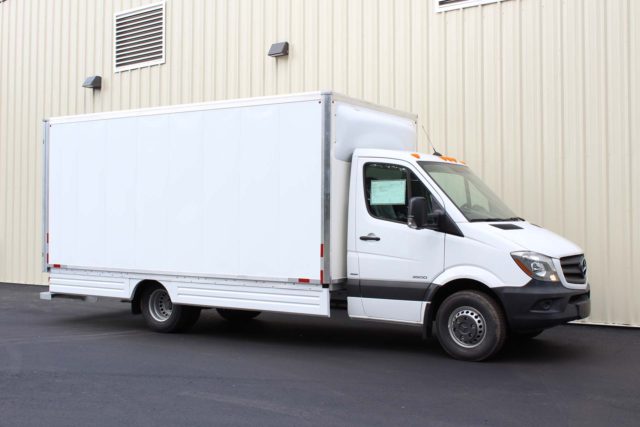Box trucks usually have a cargo area that is separate from the cab and fixed to the frame, and the cargo area is mounted on the box truck’s vehicle, making it an integral unit. Box trucks are more commonly used by cargo suppliers transporting large boxes and accessories, while box trucks are most commonly used by plumbing, transportation, and electrical repair companies. More and more service business owners are discovering the many advantages of using a box truck. Here are four essential benefits of box trucks for service businesses, along with some caveats and warnings.
What Is a Box Truck?

Obviously, box trucks get their name from their box shape. Also known as a cube van, cube van, box van, or rolling toaster, a box van is basically a truck with a cabin that has an enclosed area for storing cargo. The cabin is usually separated from the cargo area, although some models have a door that separates the cabin from the cargo components.
Box trucks come in a variety of sizes and can be used for many types of missions. In addition to delivering services and products to customers, they are used to bring equipment to job sites and transport inventory from warehouses to retail stores.
Types Of Box Trucks
Not all box trucks are designed in the same way, which has resulted in several common box trucks on the market today. Box trucks can be divided into two different categories, one based on their cab design and the other based on their capacity.
Cab Design
- Traditional: The traditional cab design features a standard truck nose with the engine placed in front of the steering wheel.
- Cab-Engine (Cabover): The front of the cab is flat and the engine is located under the cab seat.
Capacity type
- Light Box Truck: Lightbox trucks have a load capacity of 8,500 to 14,500 pounds. The fronts of these trucks look like Lightbox trucks, but they feature box-style cargo areas. Light duty trucks offer better fuel economy than larger capacity trucks and generally have smaller builds that make navigation easier for less experienced drivers.
- Mid-Duty Box Trucks: Medium-duty box trucks have a capacity of 15,000 to 33,000 pounds and are ideal for heavy-duty hauling and towing. These trucks are usually equipped with durable diesel engines and are designed for long-term commercial use. Mid-duty trucks can be purchased with longer body lengths to provide ample storage space.
4 Basic Benefits of Box Trucks

- Free advertising
One of the main benefits of having a box truck for your service business is that you can advertise on wheels for free. Consider how you use your truck to promote your brand and how the details of your business are more visible to the public than the small number plate on a pickup truck.
- Not Having to Hook Up and Pull a Trailer
Do you spend a lot of time towing a trailer every day? In addition to being time-consuming, pulling a trailer is expensive, as it can mean paying more for fuel. Fortunately, when you’re driving a box truck, you don’t have to worry about all the extra weight of hauling a trailer.
As a result, your deliveries can be faster, you can pay more attention to getting to the job site, and provide high-quality service to your customers. Plus, you save time by not having to disconnect the trailer at the end of the day and unload equipment.
- Safe storage container
Another great reason to use a box truck is that it provides a safe place to store tools and equipment. When your wares and tools are stored in box trucks, vandals are less likely to break in and steal your stuff. Also, your goods and tools will not be affected by severe weather, such as wind and rain.
- More convenient operation and better fuel consumption
Box trucks are mainly used for local travel because they are easier to maneuver than larger semi-trucks. In most cases, box trucks have better gas mileage than larger trucks. Due to their ideal size and fuel consumption, box trucks can be the perfect solution for driving in tight areas and heavy traffic. See more about What Is A Straight Truck?
Other Considerations and Warnings of Box Trucks
- While smaller trucks are easier to drive and cheaper, they lack the capacity most businesses need.
- The most common type of truck is the medium truck. Other body types include flatbed trucks, refrigerated trucks, utility trucks, and landscape trucks.
- Box trucks come in a variety of sizes and are usually measured by the length of the cargo area.
- Consider the height of the van. If you have a habit of eating lunch at fast food restaurants, high trucks are out of the question.
- Almost all models include a rolling shutter, which works like a garage door. Another option is a liftgate, which is used to lift and lower cargo from the street to a truck. It’s mostly used for street deliveries, not loading docks.
- Make sure your box van meets the weight limit to avoid paying hefty fines for overweight box trucks. So if your cargo exceeds the weight limit, you either buy a bigger truck or split it.
- For unusually large loads, a complete semi-finished product may be required.
- Identify the most important features you need on your truck.
What Else Can You Do With A Box Truck
Commercial vehicles are one of the best-kept secret companies because they have huge advantages. They can do almost anything. Some argue that companies that need trucks also need some manual labor, such as landscape designers, florists, or construction. The image that comes to mind is a truck acting as a service provider.
Imagine running a courier service with your typical hangout? This is almost impossible with larger loads and you have to buy a trailer. You don’t have to get involved in a trailer with a box van. One of the major burdens in terms of time and fuel economy is hooking and uncoupling the trailer several times a day. For example, it will be easier and even more efficient to drive a box truck back to a garage or storage unit than using a trailer. Because they are usually used for moving, there are ramps and other tools and equipment available for a quick change of box trucks. See more about What Is a Reefer Truck?
Can You Market A Business With A Box Truck?
One of the best things you can do with a box van is to use it to support your customers with branding and marketing. How are you going to market a truck? Packed in a box truck, obviously!
Box truck packaging is a convenient reminder for existing customers and a good first impression for new customers, which is simpler and in some cases more successful than billboards.
Conclusion
A box truck is an extremely versatile vehicle that can easily transport any type of cargo. Across industries, box trucks are valued for their protected cargo space and powerful engines. Box trucks are versatile enough to provide your company with exceptional transport options for almost any type of cargo.
